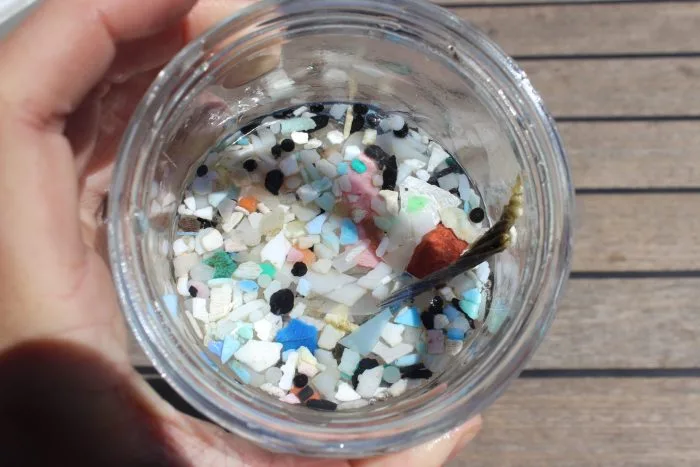News
SEA’s Efforts Continue: Understanding Plastic Debris in Our Ocean

A staple of any SEA program aboard one of SEA’s tall ships, the twice-daily neuston tows collect plankton samples from the first 25 centimeters of the water column. Students conduct ‘100 counts’ to identify the types of zooplankton and measure volumes to calculate how many plankton are at the site of the tow; however, in the late 1970s SEA students and faculty started to report seeing microplastics in the samples collected in the Western Atlantic. By 1984, SEA students were routinely collecting data and samples of the marine debris pulled from SEA’s neuston tows, marking the start of SEA’s microplastics dataset and archive. Through the work of SEA Research Professor Dr. Kara Lavender Law and Research Associate Jessica Donohue, SEA recently launched an interactive data portal to provide researchers and institutions around the world access to SEA’s plastics dataset. With over 40 years of samples and data collected, SEA’s dataset is one of the largest microplastics datasets in the world.
Utilizing samples obtained through SEA’s neuston tow operations, Dr. Lavender Law, and Ms. Donohue, spearhead efforts to raise awareness about the critical issue of plastic pollution in our oceans. Their research delves into the origins, dynamics, and long-term implications of plastics in marine environments, resulting in multiple publications documenting their findings. Their most recent publication explored “Plastic Marine Pollution in the Gulf of Maine.”
Dr. Law has served as a participant, panelist, and speaker for G7 and G20 series as well as serving as a witness in 2018 at the U.S. Senate Committee on Environment and Public Works Hearing: “Cleaning Up the Oceans: How to Reduce the Impact of Man-Made Trash on the Environment, Wildlife, and Human Health?” (Washington, DC, Sept. 26, 2018). This week, Dr. Law is attending the fourth meeting of the Intergovernmental Negotiating Committee (INC-4) in Ottawa, Canada. The participating UN Member States continue to meet to come to an agreement that addresses global plastic pollution. INC-4 will have a special session dedicated to addressing plastic pollution in the marine environment. Dr. Law hopes “that an agreement will be reached to address all aspects of the plastics life cycle, from manufacture to use and end-of-life management, and that actions will be based on robust data and learned knowledge.”
To read more about SEA’s history with microplastics data, visit SEA’s Plastics Lab.